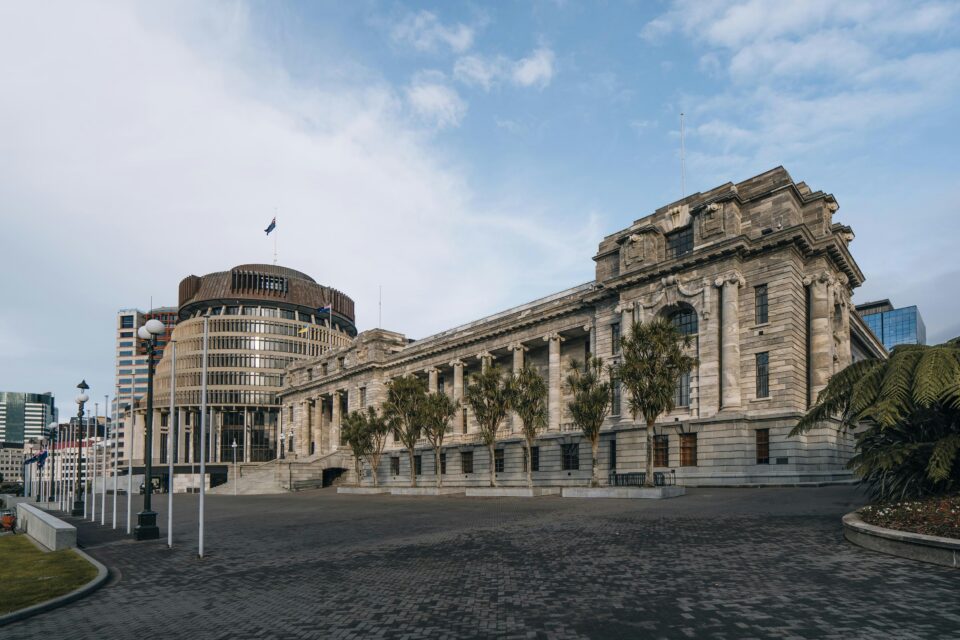The Government is taking back central services from local councils, leaving them to “deliver essential services and core infrastructure”.
“Earlier this year, the Prime Minister and I set clear expectations: focus on what must be done, not on nice-to-haves. Today’s announcement delivers on that plan,” says Local Government Minister Simeon Brown.
“Rates are out of control and the Government is taking action for councils do the basics brilliantly, rather than pursuing expensive extras that burden ratepayers.”
The local government reform programme will remove references to the ‘four well-beings’ from the Local Government Act 2002, refocus local government on basics, avoid duplication of roles with central Government, and benchmark council performance.
“Evidence shows that including the four well-beings in the Act led to about two percent higher rates growth each year. Removing them sends a clear message that councils must focus on roads, rubbish, and reliable infrastructure.”
The Department of Internal Affairs (DIA) is to publish a yearly report on key financial and delivery outcomes, helping ratepayers hold councils accountable, says Brown. Reform includes “modernising outdated rules”, including removing requirements for newspaper notices to drive efficiency and cost savings.
“The first benchmarking report on local councils will be released in the middle of 2025 and is expected to include a number of key council performance metrics.”
These involve rating information “so that ratepayers know the amount of rates levied per unit, the change in rates since the previous year, and the forecast change in rates over the next 10 years.”
Key council performance metrics include; council debt, including debt per rating unit, percentage change in council debt since the previous year, and forecast change over the next 10 years; capital expenditure, including a breakdown by activity class such as roading and water services; a balanced budget, showing whether a council is balancing its budget or borrowing to support expenditure; and the condition of council roads, “so that ratepayers can compare the state of their local roads with councils across the country”.
“This report will be released ahead of the next local council election to give ratepayers and residents clear information about their council’s performance prior to going to the polls in October 2025,” says Brown.
“Legislation will be amended to allow future benchmarking reports to include comparison of contractors and consultant expenditure alongside other key metrics.”
Browne says Cabinet will consider additional measures that will be included in legislation introduced mid-2025 and passed by the end of the year. They will consider pegging rates similar to that of NSW, reforming codes, reviewing audit requirements, and establishing a written question system to give councillors more access to information.
“Putting local government on a more efficient, affordable path is a priority. Councils must also scrutinise every dollar they spend as they prepare their next annual plan.
“These decisions give councils a clear signal of Government’s direction. I look forward to introducing these reforms to Parliament next year.”
ACT Local Government spokesperson Cameron Luxton adds, “Labour’s introduction of ‘four well-beings’ to the Local Government Act invited councils to get involved in practically anything.
“We’ve seen councils spending precious ratepayer money in areas that are either of low benefit or are the responsibility of central government, from climate change to public health and tourism campaigns.”
He says his party would also like to see a stronger emphasis on democracy in the Local Government Act. “The moves by some councils to give unelected appointees voting rights on committees, or to create Maori wards with disproportionate voting power, are unacceptable.”
Not impressed
Clutha Mayor Bryan Cadogan told media sources his council currently spends 92 percent of their budget on Three Waters and roading.
“Our real problem is that Three Waters has obliterated virtually all of our budget, we’re denied that opportunity to solve that truly and then we get the blame for it, this is so frustrating. The encumbrance that we’re seeing being placed on our ratepayers over the next 10 years is ungodly. It is all Three Waters.”
Gisborne Mayor Rehette Stoltz also says her council doesn’t have the time or funds to focus on any luxury projects and is laser-focused on recovery.
“Ninety two percent of my expenditure goes on flood-protection roads, water waste, environmental management. I welcome the government saying, ‘let’s focus more on efficiency and effective spending.
“Another point I want to make is the four well-beings being inserted, taken out, inserted, and taken out muddies the waters for all councils, it is confusing – make a decision and stick to it.”
Similarly, Hutt City Mayor Campbell Barry says 84 percent of his council’s capital budget is spent on water and transport.
“We are an infrastructure delivering body, that’s literally what we are, and other 16 percent goes to all of the other things that councils do, and also things that our community really values … our libraries, our pools and all those other types of facilities”.
Defining ‘well-being’?
Wikipedia defines ‘well-being’ as: “Wellness, prudential value, prosperity or quality of life …what is intrinsically valuable relative to someone. So the well-being of a person is what is ultimately good for this person, what is in the self-interest of this person.”


